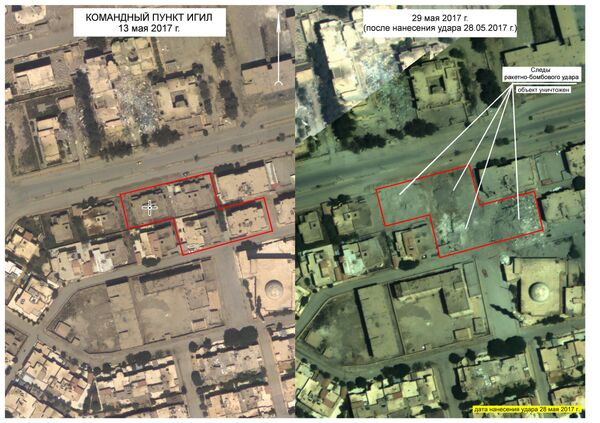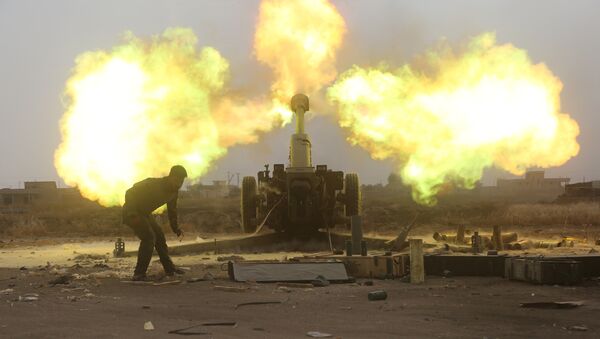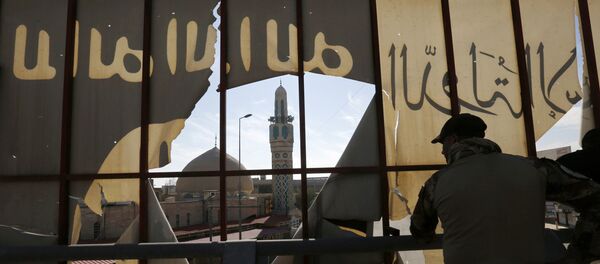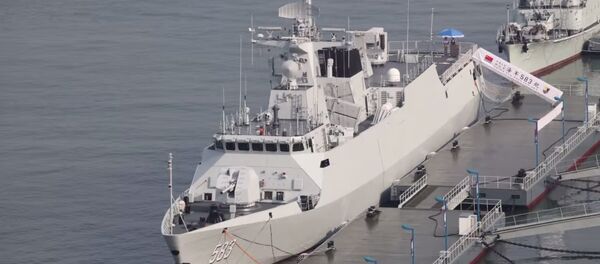In January 2015, the so-called Islamic caliphate spanned 90,800 km2. Two years later, it had decreased by one-third to 60,400 km2. From January to June 2017, the amount of territory controlled by the group declined by almost half, to 36,200 km2.
"The Islamic State's rise and fall has been characterized by rapid inflation, followed by steady decline" said Columb Strack, senior Middle East analyst at IHS Markit.
"Three years after the 'Caliphate' was declared, it is evident that the group’s governance project has failed."
After overrunning the Syrian city of Raqqa in January 2014 and Iraqi Mosul in June 2014, Daesh leader Abu Bakr al-Baghdadi declared an Islamic "Caliphate" in Iraq and Syria on June 29, 2014.
"The sun of jihad has risen … Here the flag of the Islamic State, the flag of tawhīd (monotheism), rises and flutters. Its shade covers land from Aleppo to Diyala," al-Baghdadi claimed in an online statement.
Since then, however, the group has been steadily losing ground thanks to anti-terror operations in Syria and Iraq, and is on the brink of losing both its strongholds.
On June 6, the US-backed Syrian Democratic Forces and their Syrian Arab Coalition partners launched an operation to liberate Raqqa from the terror group. Kurdish fighters have estimated that the operation will take several months.
Last week, the Russia Foreign Ministry said it is "highly likely" that Daesh leader al-Baghdadi was killed in a Russian airstrike on a group of terrorist leaders attending a Daesh military council south of Raqqa on May 28.

In addition, Iraqi government forces and Iran-backed militias are preparing to eliminate the last remaining pockets of Islamic State control in Hawija, Tal Afar and al-Qaim once the Mosul operation is complete, the report says.
"The Islamic State's remaining caliphate is likely to break up before the end of the year, reducing its governance project to a string of isolated urban areas that will eventually be retaken over the course of 2018," Strack said.
"Losing control of the heavily populated Iraqi city of Mosul, and oil rich areas in the Syrian provinces of Raqqa and Homs, has had a particularly significant impact on the group’s ability to generate revenue," said Ludovico Carlino, senior Middle East analyst.
"Although the Islamic State still appears to be involved in some commercial activity, especially oil production, there are indications that it is attempting to increase its financial 'reserves,' accelerating the shift from a highly bureaucratic and centralized quasi-state economy towards funding a future insurgency through a real war-economy. An attempt to force people living in the Caliphate to pay all transactions with the Golden Dinar – the group's currency announced last year – is the most evident indicator of this trend."
Analysts have suggested that the group is likely to try attempt more terrorist attacks outside the Middle East in an attempt to compensate for its shrinking influence.
"It may be more that they spread out and use places such as Libya and elsewhere to conduct more attacks in Europe in order to try and keep the momentum of ISIS and also the recruitment from around the world," Smith said.
Daesh has reportedly banned its members from using social media, and has lost the key figures of al-Baghdadi and the Bahraini cleric Turki al-Binali. Smith said that Daesh may turn to somebody who can provide leadership in a guerilla conflict.
"It shows that ISIS is very much on the back foot, they've lost their territory, they've lost their ability to recruit as easily as they did, so this shows a shift in tactics toward a more clandestine, hidden secretive organization that is going to be more looking to plan terrorist attacks rather than taking over territory and trying to promote itself as a state-like entity," Smith said.







